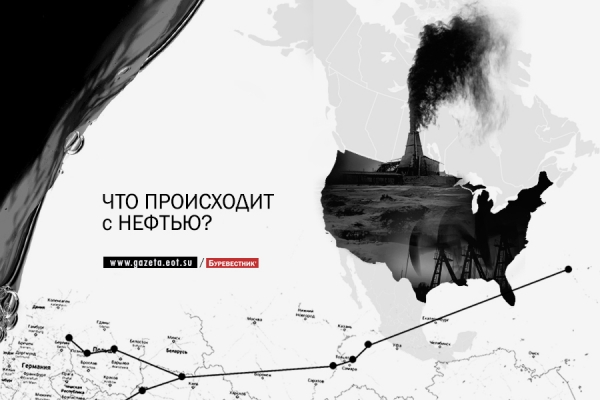A price war between Russia and the oil producers of the Middle East is becoming more intense. About it as transfers “Interfax”, said in its monthly report the International energy Agency (IEA).
The document notes that Iran, Iraq, Saudi Arabia and Kuwait are trying to win Russia’s traditional and almost oversupplied European market.
Recently, Iran continues to regain markets after the lifting of international sanctions, followed by Saudi Arabia and began oil supplies to Poland. In late June, the oil supertanker The Atlantas left the main Iranian oil terminal and went to the Polish port of Gdansk.
Earlier Saudi state Saudi Aramco has reduced the price of oil to consumers of Mediterranean Europe with delivery in August, and competitors from the Middle East are expected to follow suit.
IEA predicts oil production growth in Russia this year to 120 thousand barrels per day (b/C) to 11.18 million b/d, which will be replaced by decline in the following year to 11.14 million b/d.
The Agency improved the Outlook for oil refining at Russian refineries in the third quarter to 150 thousand b/d to 5.5 million b/d. However, relatively last year the processing volumes will be less than 290 thousand.
Russian officials have already expressed concern about the emergence of oil from Saudi Arabia to the markets of the Eastern European countries, particularly Poland. So, at the end of last year, Minister of energy of Russia Alexander Novak said that the Kingdom is destabilized oil market and the head of “Rosneft” Igor Sechin complained about the fact that Saudi Arabia is “active damping” and its strategy has become an important factor in the decline in world prices.
In addition, the experts of the Bank of Russia wrote that the supply of oil from Saudi Arabia to Europe have a negative impact on the value of the Russian Urals.
Recall that in 2014, Saudi Arabia has initiated new tactics of the OPEC oil cartel. Rather than reduce oil production and raise the price of it, as has been done previously in such cases, OPEC, at the urging of Riyadh, has kept production levels unchanged.
In 2015 Saudi Arabia began shipping to Hungary, Poland and Sweden, which has traditionally purchased mostly Russian oil. While these volumes, analysts say, are too insignificant to affect the market, but in the spring of Saudi Aramco and the Polish concern PKN Orlen has signed a contract to supply monthly 200 tons of oil to refineries of the Polish company. The contract is valid from 1 may to 31 December 2016 with the possibility of automatic renewal. Oil will be processed at refineries in Poland, Czech Republic and Lithuania.
“This is the first direct long-term contract our company with the supplier from the Gulf region. This suggests the strategic plans of diversification of sources of oil supplies, which is based on partnerships with reliable producers from different geographical regions, ensuring the optimal structure of supply and good financial conditions,” – noted then in PKN Orlen.
Iran at the time of the imposition of sanctions in 2012, has produced nearly 4 million barrels of oil per day, of which 2.5 million barrels were overseas. With the onset of restrictive measures production fell to 2-2,5 million barrels per day, of which 1 million barrels, Iran has managed to sell abroad.
After the cancellation of the basic package of sanctions, which happened in January this year, Iran declared its desire to regain its market share and the level of oil production to the level prior to the imposition of sanctions, about 4 million barrels per day.
According to the Ministry of petroleum of Iran, by the end of March oil exports in the country reached 2 million barrels per day, and in the second half of 2016 it will be about 3.6 million barrels.







